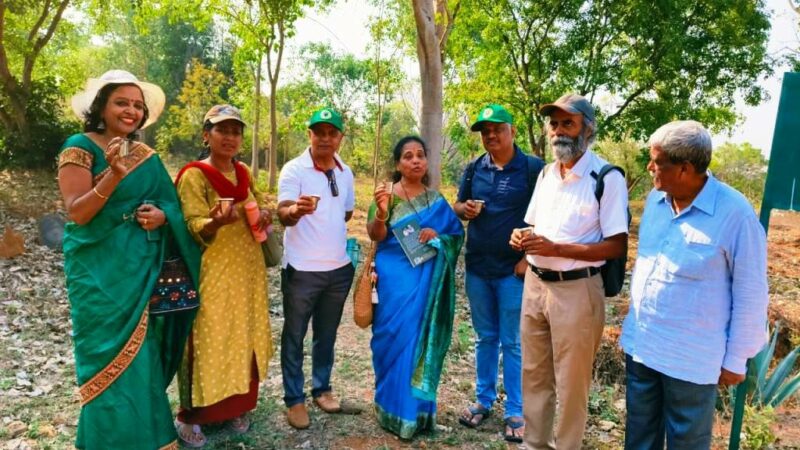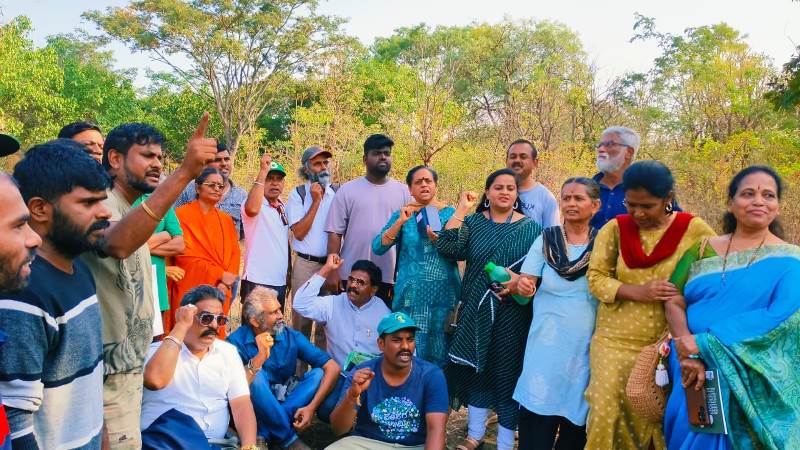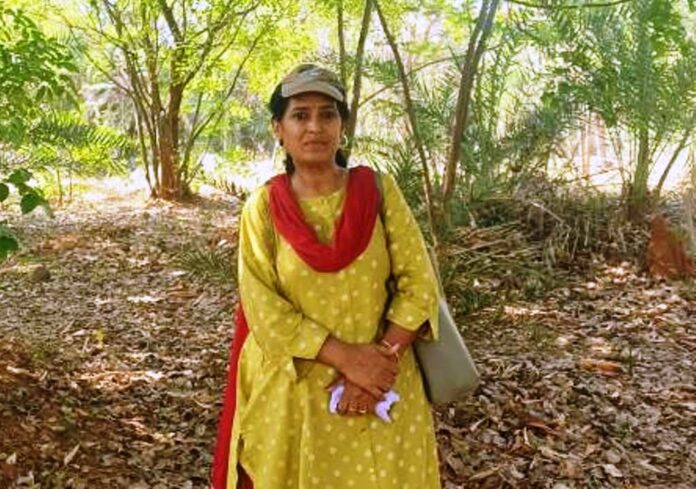Environmental conservation can be practiced in many ways. Separating wet and dry waste daily at home and storing them separately, handing them over to municipal waste collection vehicles instead of littering, carrying cloth bags from home for vegetable or grocery shopping, deciding not to use plastic bags, planting and nurturing saplings with like-minded people in spare time, and ensuring trees are not illegally cut down are some of the ways to serve the environment.
On April 22, 2025, World Earth Day was meaningfully celebrated by environmental activists at the biodiversity park in Bengaluru’s Jnana Bharathi campus. The gathered activists emphasized the importance of environmental conservation and shared their views on the significance of the biodiversity park.

During the event, environmental activist Shailaja Gowdatti brought steel tumblers and served coffee she had prepared herself. Fellow activists highlighted her practice of bringing steel tumblers and coffee to environment-related programs. Beyond serving coffee, she strives to avoid the use of plastic-coated paper cups, a point that attendees appreciated. Notably, her management of a “Plate Bank” was also mentioned. Shailaja Gowdatti runs this Plate Bank to provide steel plates and tumblers free of cost for environmental programs.
Explaining the initiative, Shailaja Gowdatti said, “Environmental conservation programs should be eco-friendly in every way. Under no circumstances should non-eco-friendly materials be used, even unknowingly. With this in mind, I decided to start the Plate Bank. Currently, it includes 200 steel plates, 200 coffee tumblers, and 100 water tumblers, all available for free use.”
When informed in advance, she personally covers the cost of transporting steel plates and tumblers to environmental programs held in Bengaluru. No deposit is required for their use. If the items are not cleaned after use, she and her dedicated team of environmental activists clean them. Occasionally, the number of plates and tumblers decreases because users misplace them. Initially, she refused to accept payment for missing items, but after persuasion from fellow activists, she now accepts compensation.

Alongside managing the Plate Bank, Shailaja actively participates in planting saplings, watering and nurturing them, and protesting illegal tree felling. She also educates school children about the importance of environmental conservation. Recently, she founded an organization called “Hombewu” to further these efforts.
“In the coming days, we plan to increase the number of plates and tumblers in the Plate Bank and arrange a vehicle to transport them. Most importantly, the use of plastic plates and tumblers must stop. Everyone should resolve not to use them. This will bring significant change, and it is our collective responsibility,” Shailaja Gowdatti emphasized.


































